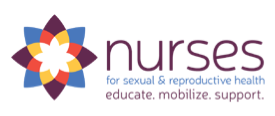In a culture that provides a false narrative of what birth should look like and a system that isn’t designed to support all birthing people, birth experiences often don't match parents’ expectations. Furthermore, the physical and emotional vulnerabilities of birth in conjunction with our racist healthcare system contribute to high levels of birthing associated trauma. This can extend to birth workers too. Nursing schools and the medicalized model of birth do not prepare or provide nurses and other birth workers with the tools to adequately prevent or support our patients through this. Join us as we explore ways nurses can support patients' overall perinatal mental health and the processing of their birth trauma.
This webinar is part of our Transformative Nursing: Deconstructing Punitive Healthcare education series. In this webinar we learn about the multitude of ways overturning Roe v Wade is impacting pregnancy outcomes, nursing practice, and patient well-being.
This webinar is part of our Transformative Nursing: Deconstructing Punitive Healthcare education series. In conversation with Joelle Puccio (RN) from the Academy of Perinatal Harm Reduction we challenge beliefs around drug use in pregnancy and learn about how nurses can provide ethical, evidence based care to pregnant people using drugs and reduce carceral harms to both the pregnant person and their baby.
This webinar from PICCK will review the available contraceptive options for patients in the postpartum period and debunk common myths about contraception and lactation.
From Frontier Nursing University, this continuing education presentation focuses on pharmacological management of peripartum psychiatric disorders. It provides an overview of the risk factors and prevalence of common peripartum psychiatric disorders before delving into diagnostic criteria and evidence-based pharmacologic interventions. Case studies will be used to illustrate appropriate evidence-based pharmacologic management strategies.
Socially conscious, culturally appropriate, diverse, and action-oriented trainings for birth workers that also prepare them to be active partners in the movement to change birth and reproductive health culture locally, nationally and globally.
Published research articles that are accessible, accurate, and inclusive designed for health care workers supporting birthing families. In addition to resources for providers, they have resources for patients/families, a blog, and a podcast.
A national nursing membership organization working to empower and support nurses caring for women, newborns, and their families through research, education, and advocacy.
ACNM is the professional association that represents certified nurse-midwives (CNMs) and certified midwives (CMs) in the United States.
This is a model of care aimed at reducing birthing disparities.
This brief put together by Birth Detroit, Mothering Justice, and the Elephant circle educates communities on birth justice principles, policies and opportunities.
This resource explains tools for screening, diagnosis, and selecting therapy for PPD; tools to facilitate nurse follow-up calls and patient self-care; and recommendations for monitoring the progression of depressive symptoms.
